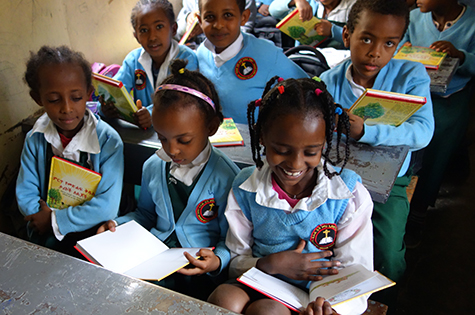According to the United Nations Children’s Fund (UNICEF), the total number of girls married in childhood globally is now estimated at 12 million a year, representing a drop of 25 million over a decade.
Ethiopia is among the countries that are contributing to this progress. It has cut child marriages by a third, over the past 10 years. Before 2008, 2 in every 5 girls in Ethiopia were forced into marriage before the legal age of 18.
A new report by the United Nations Children Education Fund, however, shows a downward trend in the last ten years.
“Ethiopia I think is the country with the only national coordinating unit on harmful practices that brings together all the key stakeholders including from UN agencies, the government ministries, NGOs , researchers to come together and discuss and deliberate about what is working , what needs to be done better ,” Karin Heissler, UNICEF’s chief child protection officer said.
“And at the moment the group is working on a roadmap in terms of what are the investments needed between now and 2025 to end these practices,” she added.
Winning the battle against child marriage is bound to take time, because of barriers including poverty, lack of education and cultural traditions in parts of the country.
“We can help target the investments to those interventions that can reach the largest numbers of girls and including in some of the most populated areas but of course also some of the areas where girls may be more remote they are rural, it’s harder to get services to them because I think the key thing for us is we don’t want to live them behind either,” Heissler said.
National statistics show that median age for girls getting married is 16, but many fall victim before that.
Alula Pankhurst who has been researching and working closely with the Ministry of Women and Children affairs in Ethiopia says more concentration needs to be given to pre-teen marriages that occur because children don’t have a say.
“We need to improve the opportunities for girls not just in education but also in training work. We need to be able to provide childcare for those who have already got married and had children and we need to work with girls themselves so that they can stand up to these practices and we need to work with boys and young men and fathers we know that when fathers take a stance, that is even more important than mothers taking a stance,” Pankhurst said.
The government is also planning to use religious leaders to try and help change cultural expectations around child marriage.
The government is setting up projects in hot spot regions with the aim of creating economic empowerment and more educational opportunities, for women and girls.
It’s hoped this will encourage them to take time while deciding for themselves when they are mature enough to be married.




